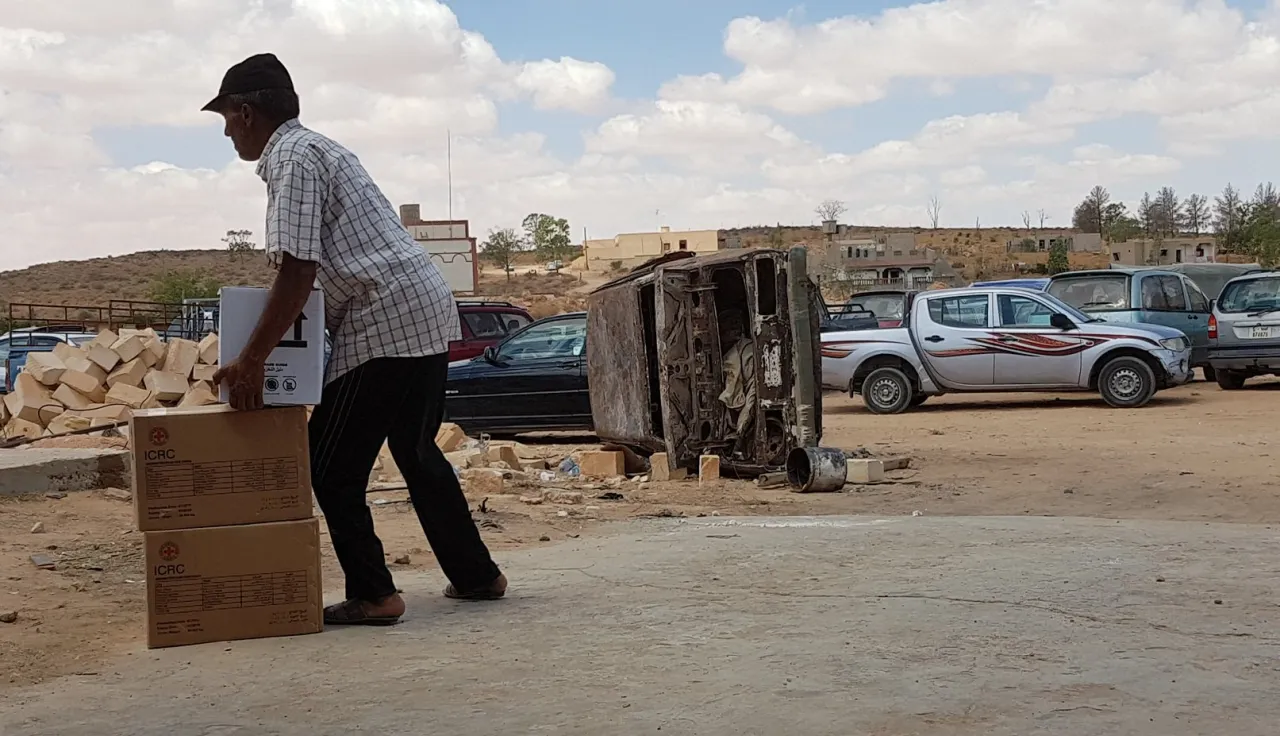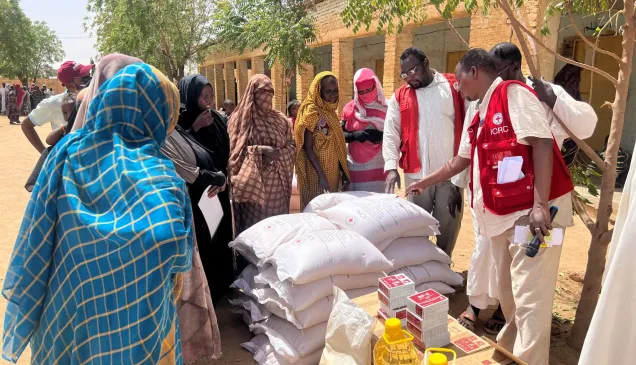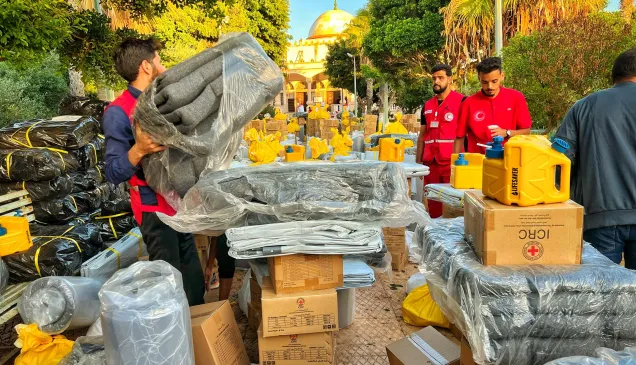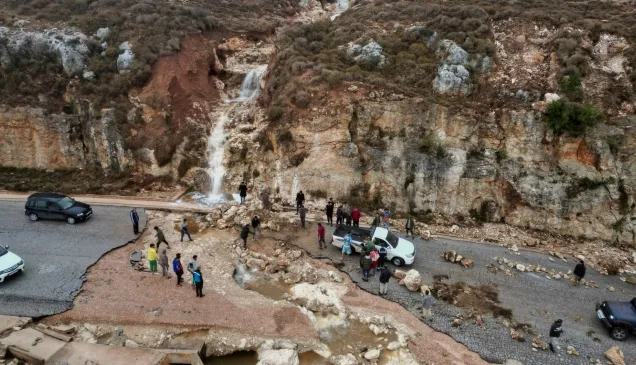Tripoli (ICRC) – The conflict in Tripoli continues with no end in sight over two months after it began. Casualties are steadily mounting in the eastern and southern parts of the city, and as many as 90,000 people are estimated to have already been displaced, while tens of thousands may be trapped in their neighbourhoods. Because of indiscriminate attacks, it is increasingly dangerous for medical workers to help the wounded.
“Heavy shelling and airstrikes have become all too common since early April,” said Danielle Hannon-Burt, the head of office in Tripoli for the International Committee of the Red Cross (ICRC). “Fierce fighting in parts of Tripoli includes direct or indiscriminate attacks against civilians and their property. It also includes attacks against key electricity, water, and medical infrastructure essential for the survival of the civilian population, potentially putting hundreds of thousands of people at risk. Simply put: a wider escalation could lead to an irreversible humanitarian crisis.”
Whether living near the frontlines or in calmer areas, people are finding it increasingly difficult to go about their lives. Many desperately try to hold on to some degree of normalcy, even as blasts and shootings echo in the background. Many more suddenly find themselves caught in the cross-fire. Those who find a window of opportunity leave their homes as a very last resort, sometimes multiple times. The violence is all too familiar, as heavy clashes have repeatedly shaken Tripoli since Libya’s unrest began in 2011, most recently in September 2018. This time, many fear a long and protracted fight.
HUMANITARIAN CONCERNS
- Fighting in heavily-populated civilian neighbourhoods remains our greatest concern. Tens of thousands of civilians could also still be trapped in their homes in several frontline areas in densely-populated residential neighbourhoods. An upsurge in violence could have massive humanitarian consequences on the civilian population in the long-run.
- The number of people displaced from their homes has at least tripled in just over two months.
- Respecting neutral and impartial health care in general remains a major concern. Threats against health care personnel and delays affecting medical supplies, transportation and unimpeded access to health care could have serious and potentially lethal impacts on the population.
OPERATIONAL NOTES
- More than 45,000 people – more than 7,500 families – have been assisted by the ICRC with food and other essentials in locations including Tajoura, al-Fornaj, Zintan, Yefren, Gharyan, Abu Salim, al-Nofleen, Zawyia, Mizda, Bani Walid, Janzour, Kikla, Nalut, Tarhuna, Jumail, Hay Al-Andalous, and Sabratha.
- Over 7,200 people – more than 1,200 families – received cash assistance, about 480 Libyan dinars per household , enough to sustain a family with basic food, hygiene and other items for a month and take some load off of relatives, friends and communities hosting them.
- The ICRC continues to assess and respond to the most pressing needs by dispatching medical items to several health care facilities – including medical and surgical sets, sutures, dressing and infusion sets – most recently to Gharyan, Tarhuna, Tripoli, Airport Road and Ain Zara health facilities.
- The ICRC is helping to respond to the growing water and sanitation needs of the IDP population in nine collective temporary centres. The assistance includes bottled water distributions, rehabilitation of reservoirs, installation of shower facilities, and renovation of toilets, as well as the installation of booster pumps, all of which have helped more than 1,600 displaced persons improve their access to potable water and maintain basic hygiene standards.
For further information, please contact
Rabab Al-Rifaï, ICRC Libya (based in Tunis), tel.: +216 26 903 485
Francoise Brigitte Lambert, ICRC Dakar, tel.: +221 781 864 687
Krista Armstrong, ICRC Geneva, tel.: +41 79 217 32 87




